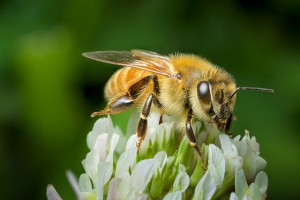White House releases the national strategy to promote the health of pollinators
The President’s Pollinator Health Task Force released the National Strategy to Promote the Health of Honey Bees and Other Pollinators which outlines federal actions designed to reduce numerous threats to pollinator health including pests and pathogens, reduced habitat, pesticide exposure and malnutrition. Specific goals of the plan include reducing honey bee colony losses during the winter to a minimum of 15% within 10 years, increasing populations of the monarch butterfly to 225 million butterflies in their overwintering grounds in Mexico by 2020 and making 7 million acres of land pollinator friendly in the next 5 years. The strategy aims to meet these goals through research, education and outreach, public-private partnerships and improving and restoring pollinator habitat. In order to minimize pollinator risk from pesticides the Environmental Protection Agency has been tasked with mitigating the effects of pesticides on bees and other pollinators. Some of their plans for the next 3-5 years include updating guidelines to more accurately reflect pesticide toxicity to honey bees, re-evaluating the effects of neonicotinoid pesticides on bee health, reviewing neonicotinoid coated seeds, assessing the impacts of additional pesticides on pollinators, and improving labeling and restrictions on pesticides that are acutely toxic to bees, and expediting the review of new Varroa mite control treatments.



